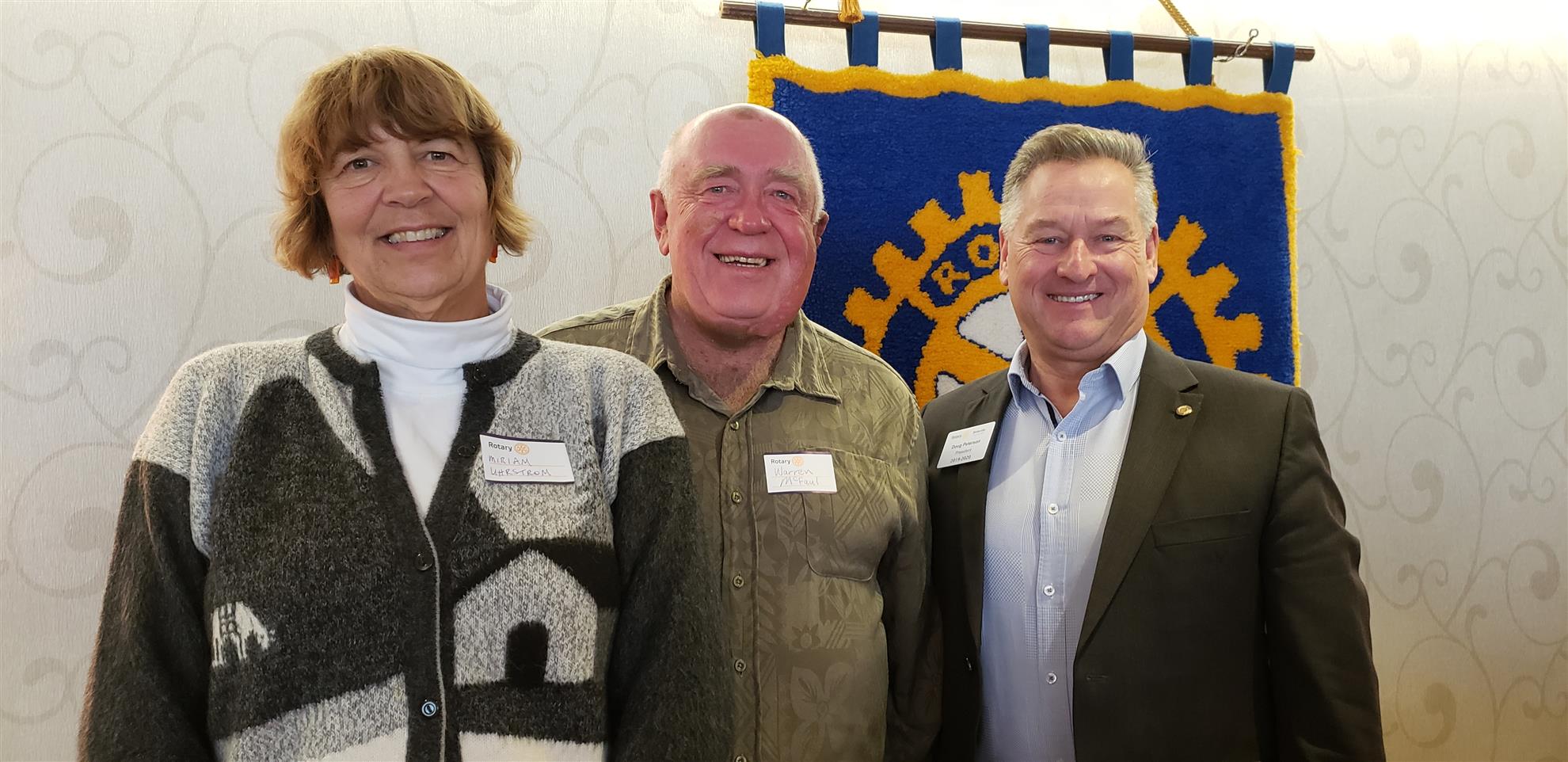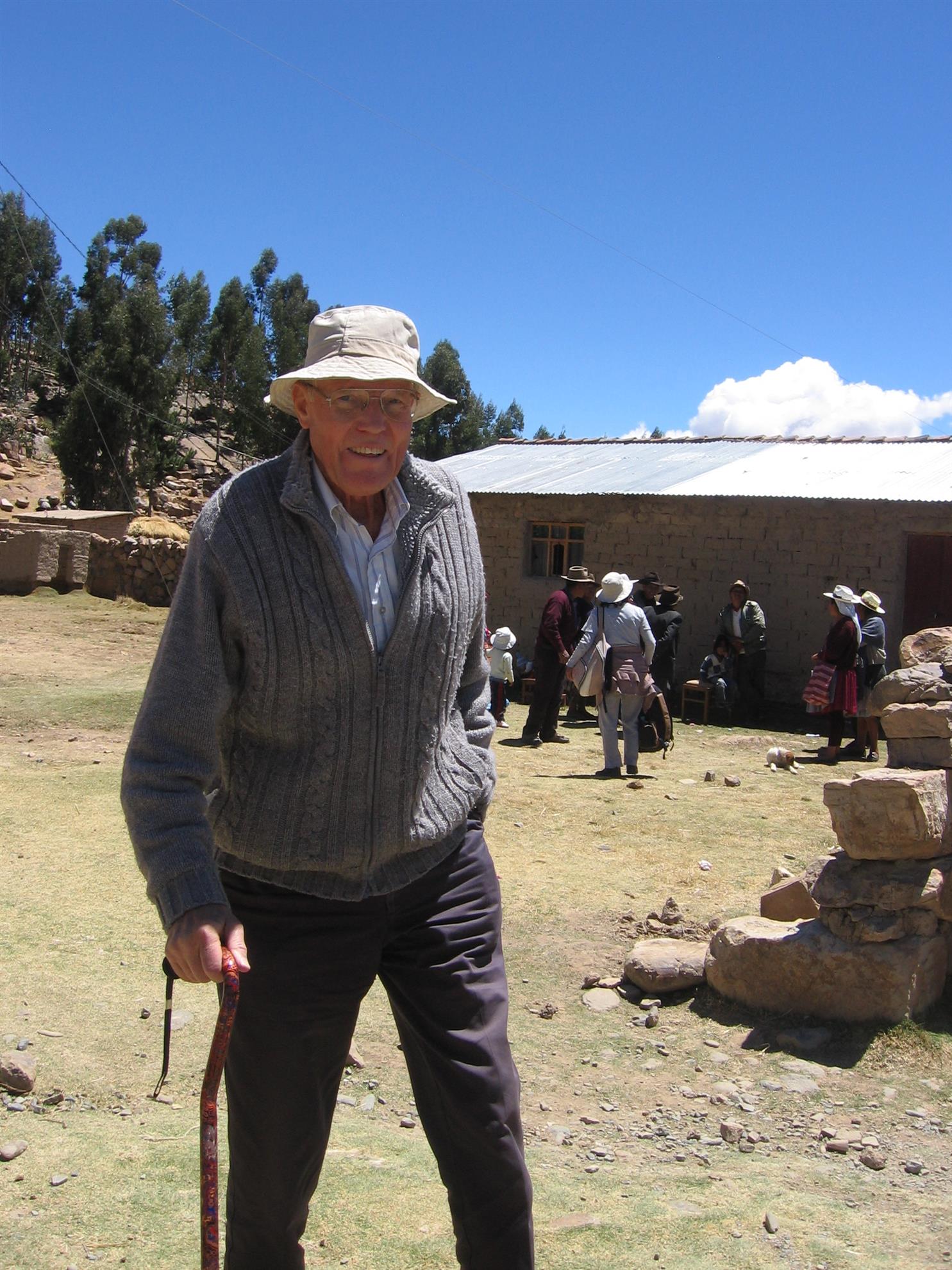
Rotarian Mike Stiff introduced today's guest speakers, Miriam Uhrstrom, wife or our own Late Karl Uhrstrom and Warren McFaul, good friends who have been working on a water project that Karl was involved with and that the Rotary Club of Belleville sponsored.
How important is a glass of clean water? The biggest health determinant in the third world is clean water. Karl had made connections with people in Bolivia through his travels to a number of countries and when it became evident that children were dying before the age of 5 years old because they had no access to clean water, Karl started to work on the Bolivian Water Project. His vision through his faith was one well at a time, one village at a time. A gentleman by the name of Gonzalo became the face of this project in his village in the Andes Mountains called Vacas Valley. People relied on farming and grew potatoes as a cash crop. They lived very simple lives. Once Karl and Gonzalo started to plan the project in 2009 to build wells in the villages the end result was a success story as 15 villages with 273 families now have their own source of clean water. They are well. They are healthy and have HOPE. (here is a photo of Karl in one of the villages)

Miriam and Karl were associated with Victoria Avenue Baptist Church and they sent the money to Bolivia for the project. After Karl became increasingly unable to get around, Warren McFaul started to visit him more and more and of course, the conversation inevitably turned to Karl's work in Bolivia and the ongoing water project there. Following Karl's death, Warren made plans for a visit to the center of South America where Bolivia is located. Met at the airport in Santa Cruz by Gonzalo, the chief volunteer and administrator of the project in Bolivia. There is no staff and no office. The money donated goes directly to building the wells. Warren and Gonzalo travelled up into the Vacas valley, an elevation of 11,000 feet, a barren landscape and cold. The inhabitants are Quechua, indigenous people who inhabited South America prior to colonization. They are the decendants of who we call the Incas. They are a tiny folk with broad smiles. They practise a mixed agriculture, raising cows, donkeys, pigs, sheep and goats. They are able to grow alfalfa, barley, oats and broad beans, but their primary cash crop is potatoes. The people are very poor by Canadian standards. Warren wanted to tell the Club about how the money that we donated is being put to work.
There is no problem finding water as the water table there is high. The farms are close to a lake. If you dig, you get water. The success of the Bolivian Water Project is due to the fact that it uses local materials and local labour. The Quechua understand cement. The monies donated provide steel rings which are a cement mould. The family also receives a little bit of cement and rebar to get started. They have to provide all the sand or gravel and all the labour and the rest of the cement that is required. Once the well is dug and the cement rings lowered into place, the cap is installed and a manual pump made with parts readily available in town is built. Warren pointed out there are some important take home lessons about this project.Gonzalo understands how important it is to keep administration costs low. It is a labour of love to him. Every dollar contributed is spent on the wells. The Quechua have a huge vested personal interest in the solution that the wells provide. A Canadian dollar has 10 times the purchasing power it has in Canada. The continued support of this project is a great investment that saves and improves lives.
This incredibly successful foreign aid project is run out of a tiny downtown church here in Belleville, funded by Rotarians and other concerned community members. This project is a wow moment. On behalf of the Quechus folks that Warren met last winter, "gracias grandes amigos". Thank you dear friends. Your generous contributions have enhanced their lives immeasurably. For more information visit www.bolivianwaterproject.com
